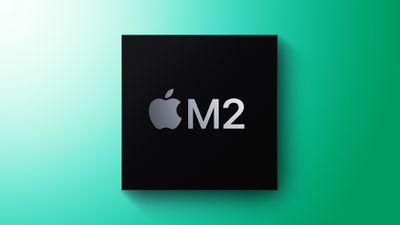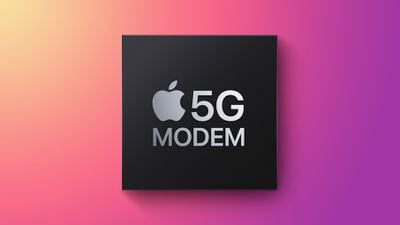With Apple's long-awaited new MacBook Pro now available, there are early signs of what we could expect from the MacBook Pro going forward as the company iterates on its major 2021 redesign.

Following a major redesign year, the MacBook Pro has typically received smaller annual updates. For example, following 2016's MacBook Pro redesign, subsequent models introduced new processors, GPUs, tweaked keyboards, Bluetooth 5.0, the T2 chip, True Tone, and larger batteries.
At this early stage, there are at least four substantial upgrades on the cards for future MacBook Pro models.
Face ID
Although Apple executives recently claimed that Touch ID is more convenient on the MacBook Pro, the company is believed to have been working on Face ID for the Mac for some time. Apple purportedly originally planned to introduce Face ID for the Mac on 2021's 24-inch iMac, but the feature was apparently delayed for a later iteration of the machine.

Face ID is believed to be coming to the Mac within "a couple of years." Now that the MacBook Pro has a notch, it seems that the groundwork is in place to add a TrueDepth camera array to enable Face ID in the future.
M2 Pro and M2 Max
"M2 Pro" and "M2 Max" will presumably succeed Apple's M1 Pro and M1 Max custom silicon chips. Just as the M1 Pro and M1 Max are scaled-up versions of the M1 chip, the M2 Pro and M2 Max will likely be based on the "M2" chip.

The M2 chip is expected to debut in the 2022 redesigned MacBook Air. According to Bloomberg's Mark Gurman, the chip will have the same 8-core CPU as the M1. It is expected to have additional GPU cores, with 9 and 10-core GPU options, up from the 7 and 8-core GPU options in the original M1 chip. There may also be speed and efficiency improvements due to the chip being built on a smaller node.
Following the way that the M1 Pro and M1 Max built on the M1 chip, the M2 Pro and M2 Max could feature the same number of CPU cores as their predecessors, but add GPU cores and benefit from overall speed and efficiency improvements.
A recent report from The Information laid out the alleged roadmap for Apple silicon in the coming years, and explained that Apple is working on successors to the M1 Pro and M1 Max chip that feature more cores and are manufactured with an enhanced version of TSMC's 5nm process.
Further in the future, those second-generation chips will apparently be succeeded by MacBook Pro chips with up to 40 compute cores that are fabricated using TSMC's 3nm process by 2023.
OLED Displays
Apple is said to be developing two-stack OLED displays for multiple future devices, including MacBook Pro models, that are up to two-times brighter.

An OLED display could come to the 16.2-inch MacBook Pro first, potentially launching as soon as 2022 according to one report. The panels may be manufactured by Samsung.
The 14- and 16-inch MacBook Pro models made the switch to mini-LED technology this year, so it would be unusual for Apple to change to another display technology within one iteration. Nevertheless, it seems that an OLED MacBook Pro is likely for the coming years, bringing higher brightness, improved contrast, and deeper blacks with no blooming effect.
5G Connectivity
Apple has apparently developed "underlying Mac support" for cellular connectivity, according to Gurman. While this rumor originated from a report about the next-generation MacBook Air, it seems inevitable that if the MacBook Air is set to get cellular connectivity, the feature will also come to the MacBook Pro.

Apple is in the process of rolling out 5G to its cellular-enabled devices, with the iPhone 12, iPhone 13, iPad Pro, and iPad mini now offering the next-generation connectivity. Apple currently relies on Qualcomm, but the company is believed to be working on its own custom modem that is set to appear in iPhones as soon as 2023. It is not unreasonable to speculate that this custom modem could also be the basis of 5G connectivity in the MacBook Pro within a similar timeframe.
Release Date
There is as yet no sign of when we could see an updated high-end MacBook Pro launch, but mid- to late 2022 or early to mid-2023 seem like reasonable guesses.
In previous years, Apple typically updated the MacBook Pro every year. Things have not been so clear-cut in recent times, however. The 16-inch MacBook Pro was announced in November 2019, and went without an update for a year and 11 months. The previous, 13-inch high-end MacBook Pro was updated in July 2019, May 2020, and then replaced by the 14-inch model last month.
Now that the MacBook Pro features Apple silicon, it is not clear if there will be a completely different launch timetable for the MacBook Pro. It is possible that since the 2021 MacBook Pro models appeared to have been delayed for several months, an updated model could be coming within less than a year. Apple is no longer reliant on Intel to update the processors in its machines, meaning that there could be a more regular update cycle akin to the iPhone.
At the same time, the semiconductor shortage, backordered deliveries, and late-stage launch of the current model may push out the launch of a successor. The scale of the most recent redesign and the performance of the M1 Pro and M1 Max may also make the company more willing to keep the current machine around for longer.





















